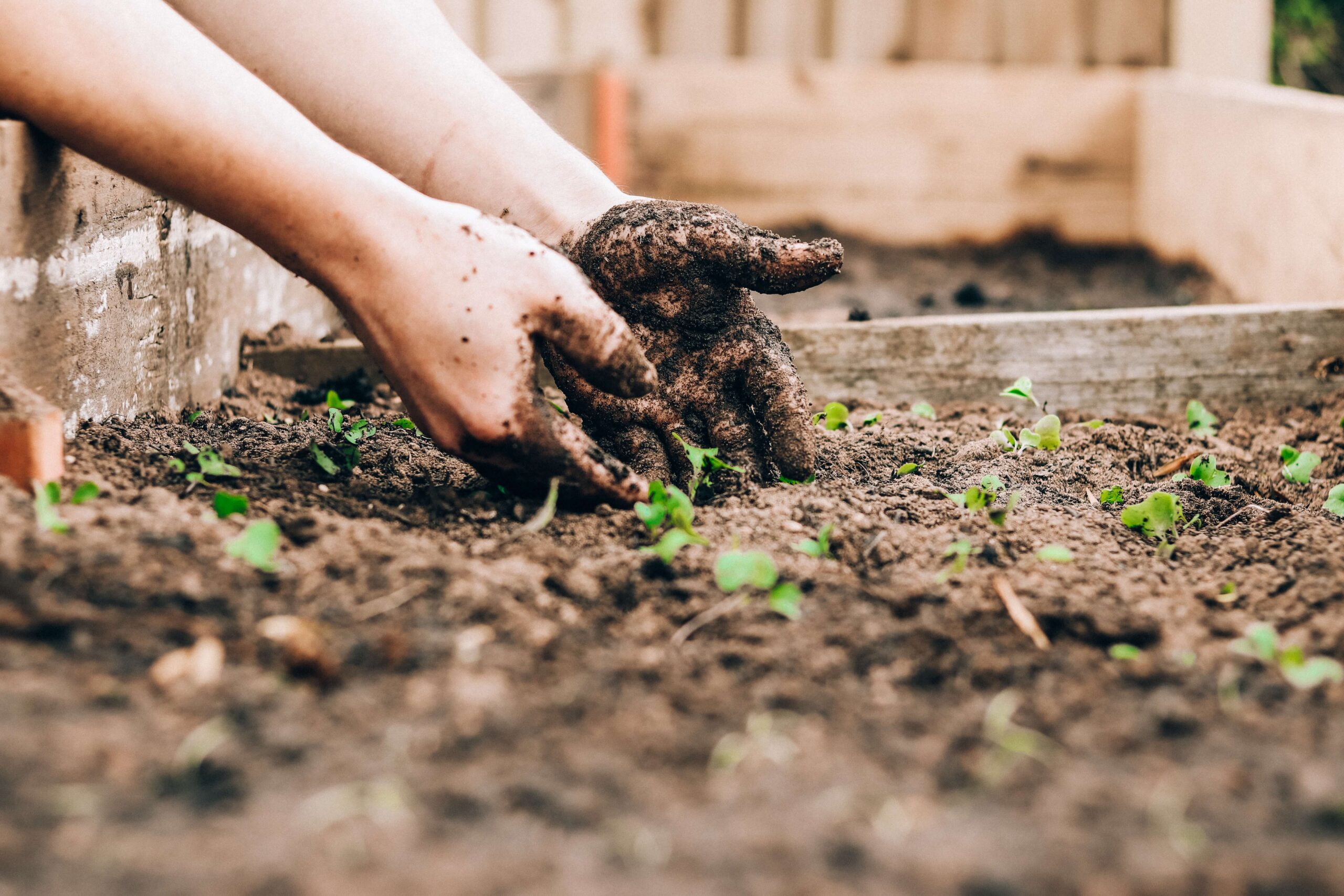
Gardening is an activity enjoyed by all and has seen a recent boost in popularity. Thanks to the COVID-19 pandemic and many people being confined to their homes, the garden became the new place to be and the best hobby to pick up. Not only is gardening great for the environment but it is also very beneficial to our mental health and overall wellbeing, both mentally and physically.
In this blog, we look at the mental health benefits of gardening and the positive impact that it can have on us and our wellbeing.
Gardening is a great activity for stress relief and can be beneficial for individuals struggling with anxiety. Just spending time outside and around nature eases stress for many people, this is called ‘forest bathing’, a Japanese expression translated from “shinrin-yoku”. It is used to explain the experience of being immersed in green and how it makes us feel. Gardening requires a lot of attention and by focusing all our attention on the task at hand, it can reduce any negative thoughts and make us feel better in the moment.
Researching the planting season, planning the garden, buying the seeds, planting the seeds, maintaining the garden, and watching everything grow can be a long and laborious process. But still, it is filled with so many rewards and a sense of self-accomplishment when the fruits of your labour have sprouted. It can be a fulfilling feeling once the garden has fully grown, and you can visually see all the effort that your hard work has gone into. It can also help with looking beyond perfectionism and learning to understand the unpredictability of life. No matter how perfectly you can plan, plant, and execute your garden, there are several factors that you cannot predict. From bugs and bird attacks to the plant itself not wanting to grow. Gardening allows us to both recognise the self-accomplishment of trying and reckon with the inevitability that life that is out of our control.
Did you know that gardening is a great form of physical exercise? Weeding, raking, digging, carrying bags of soil and plant pots, and mowing the lawn can all be classified as full-body workouts that can keep you in shape. According to SAGA Magazine, just half an hour of these activities each week can contribute to a healthy lifestyle.
Gardening multi-sensory experience and can help to ground us in the moment. From feeling the soil in between our fingers, smelling the sweetness from the flowers, seeing the plants grow, hearing birds tweeting and finally tasting the produce – gardening stimulates the senses. The more you work on the garden the more mindful of the natural environment and surroundings you can become. It allows us to be more aware of nature’s processes and cycles as begin to contribute towards it.
Teamwork can be a huge part of gardening as it helps us to connect with others. Maintaining a garden alone can be a hard task so bringing in others to help can be a great way to not only get the job done but also make meaningful connections. Two of our residents from Helena’s House specifically have seen a positive impact on their mental health journey as they spend time in the garden planting produce.
Several of our services have their gardening groups including Glen Garth House, Kirk House, Helena’s House, and Hyde Park House! From creating their planters, building greenhouses and recycling ice-cream boats, gardening has seen a positive impact on many of our residents. As part of the recovery journey, we encourage our residents to participate in activities that help with communication and mental wellbeing. We have even worked with Prospects Foundation who kindly provided us with seed starter packs containing a variety of seeds including, potatoes, carrots, onions, radishes, cabbages and many more. Read all about the collaboration here.
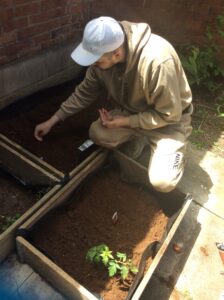

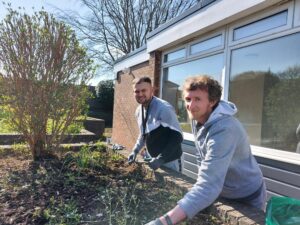

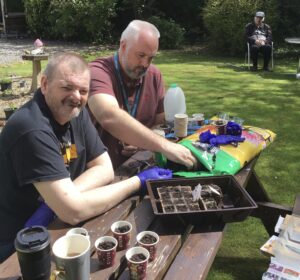
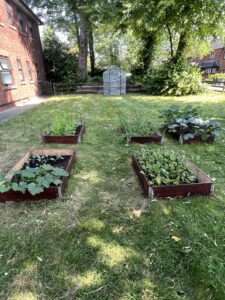
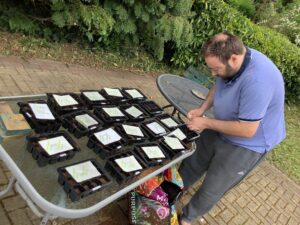
Image credit Sandie Clarke on Unsplash